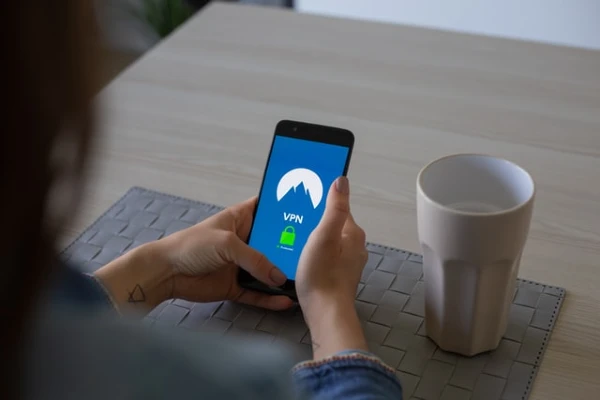Disclosure: This post may contain affiliate links, meaning we get a commission if you decide to make a purchase through our links, at no cost to you. Please read our disclosure for more info.
Internet security is a concern to everyone, students are not excluded. Every day people are connected to the internet with different devices and on various networks. Some of them are not protected and many online platforms lack security protocols. If one doesn’t take specific measures, they risk their sensitive data being leaked.
Some students might think that they should not be concerned about what can be stolen from them. They do not have a huge credit history and large assets anyway. But it is actually quite the opposite. Lack of credit history makes their data more profitable for thieves. According to the Federal Trade Commission students face a greater risk of identity theft. Whether you are a student or not, these rules will help you to increase your data security online.
In This Post:
1. Carefully Choose Sites
Young adults tend to be more online. Students use multiple devices and often connect to public Wi-Fi networks. Such networks are seldom secured and can be accessed by anyone. This is a serious security risk. It is better to not use them at all. Or do not do any transactions or log-ins when doing so.
The first rule of cyber security is to only use trustworthy sites. They use HTTPS protocols and are credible in all other regards. For example, if a student needs help with a college assignment, they might go to shady forums for help. It is a sure way to get zero results and possibly download malware. Choose only the sites you trust. For example, platforms like WritePaper offer students professional paper help with no risks of a data breach. They use advanced security protocols and measures. And professional writers provide excellent help with any type of college assignment.
You need to follow basic internet hygiene rules:
- Do not open shady links;
- Do not answer spam emails;
- Do not visit unprotected sites;
- Avoid using public wi-fi networks;
- Do not download anything from shady sites.
2. Know Types of Attacks
There are several ways sensitive data can be stolen or compromised. The main types of cyberattacks are:
- Phishing – a site or email is “phishing” for sensitive information. They trick users into giving it away. For example “you won $1,000 – enter your data to get now”. Or it can be something trickier like “someone tries to access your bank account, insert data to secure it”
- Malware – everything that has to do with viruses and malicious software. It can be disguised as an application or other type of software. After one downloads it, it gets access to the device. Malware can steal data and destroy it.
- Man-in-the-middle – This attack happens between two parties that transmit information. The attacker inserts itself in communication and steals or changes the data. It is dangerous because the user usually doesn’t know about the attack.
- Brute force – such attacks are not a concern for end-users usually. It means trying all types of combinations until the password is identified.
Knowing about these risks helps to be prepared and take protective measures.
3. Use a VPN
VPN stands for virtual private network. It is a simple software solution that hides your IP address and physical location online. For example, if you use public Wi-Fi or other networks, you can turn the VPN on and be protected.
VPN makes sure that other users cannot see what you are doing online. All of your data will be protected even if the network is not secure at all.

Photo by Petter Lagson on Unsplash
4. Install Antivirus Software
Although it is a must, a lot of people neglect this step. Every device needs antivirus software, whether it is a laptop or smartphone. Always update the software as soon as there is an update available. New internet risks appear every day and those updates ensure you stay safe from the newest ones.
It is worth investing in the premium antivirus software because it also keeps your devices safe, not only the data. But if you do not have money for that, even a free version is better than nothing.
Regularly scan the device for any threats.
5. Check Your Bank Account
Data thieves often make small transactions to not raise any attention. These can be little things that go easily unnoticed especially if you do not have an extensive credit history.
To be proactive, check your bank account regularly. Know exactly how much money you have and where it goes. Check for various strange expenses of transactions.
6. Backup Your Data
Even disregarding internet security, backups are crucial. Imagine you have finished your term paper but the computer virus has destroyed all the documents the night before the deadline. That’s some horror movie material.
A great solution is to have an external drive for data. Cloud storage is also an option. Make sure you regularly update all the essential information and documents.
7. Be Careful With New Devices
Sometimes one needs to use a public computer or someone else’s laptop. It happens but it is a new security risk.
The ideal solution is, of course, not to do so. But what if you have to? Then,
- Do not make transactions or log into personal accounts;
- Use incognito mode;
- If you have to log in make sure you log out;
- Clear history after.
8. Set Up Two-Factor Authentication
It means that to log into an account you’ll have to go through two steps. Yes, it will make it a bit slower, but it increases your protection dramatically.
For example, you’ll need to know the password and then type in a code that comes to your smartphone. If it is possible, set two-factor authentication on all important accounts.
9. Use Proper Passwords
There is always a temptation to set qwerty12345 as a password because one doesn’t have to remember it. But the passwords have to be secure. Here are some basic rules:
- Do not use obvious information that is easy to guess like your surname, mother’s maiden name, or favorite band;
- Do not use the same password for two accounts. Every password has to be unique;
- Use at least 12 characters in different registers. Also, add numbers and letters. The more random it is, the better.
- Do not store a file with a password on your device, whether computer or phone
- If you need to write them down, do it on paper and store them securely.
And, of course, set passwords on all your devices.
10. Use Biometrics
If you have a smartphone with a fingerprint scanner, it is great. Use it as another security measure, especially for online banking. For instance, there is lots of malware that acts like a log-in screen of a banking app. For instance, a person inserts their password and it gets stolen. But the fingerprint cannot be stolen this way. Using biometric data for online banking is much more secure.
In Summary
Internet protection starts with a cautious approach. Do not neglect the basic rules and principles and be careful with social media. Do not put on the internet any sensitive information unless it is necessary. If something is online, it is going to stay online forever. Stay away from shady links, downloads, and sites. Install protective software and update your devices regularly. And advance your password game to the max – you’ll train your memory as a bonus.



![FileFort Backup Software - Automate the Back Up of Your Critical Data and Files [Download] FileFort Backup Software - Automate the Back Up of Your Critical Data and Files [Download]](https://m.media-amazon.com/images/I/81Bgavn3Y7L._SL500_.jpg)

